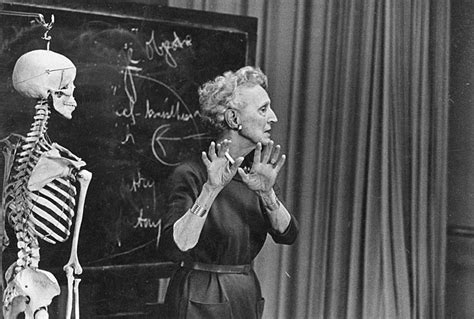A Quote by Frank Pittman
The great passion in a man's life may not be for women or men or wealth or toys or fame, or even for his children, but for his masculinity, and at any point in his life he may be tempted to throw over the things for which he regularly lays down his life for the sake of that masculinity. He may keep this passion secret from women, and he may even deny it to himself, but the other boys know it about themselves and the wiser ones know it about the rest of us as well.
Related Quotes
As a guy develops and practices his masculinity, he is accompanied by an invisible male chorus of all the other guys, who hiss orcheer as he attempts to approximate the masculine ideal, who push him to sacrifice more of his humanity for the sake of his masculinity, and who ridicule him when he holds back. The chorus is made up of all the guy's comrades and rivals, his buddies and bosses, his male ancestors and his male cultural heroes--and above all, his father, who may have been a real person in his life, or may have existed only as the myth of the man who got away.
He is not famous. It may be that he never will be. It may be that when his life at last comes to an end he will leave no more trace of his sojourn on earth than a stone thrown into a river leaves on the surface of the water. But it may be that the way of life that he has chosen for himself and the peculiar strength and sweetness of his character may have an ever-growing influence over his fellow men so that, long after his death perhaps, it may be realized that there lived in this age a very remarkable creature.
Every child has a right to know how to achieve control of his body in order that he may use it to the limit of his ability for the expression of his own reactions to life. Even if he can never carry his efforts far enough to realize dance in its highest forms, he may experience the sheer joy of the rhythmic sense of free, controlled, and expressive movement, and through this know an addition to life to which every human being is entitled.
The truly educated man is not a man who knows a bit of everything, not even the man who knows all the details of all subjects (if such a thing were possible): the “whole man” in fact, may have little detailed knowledge of facts and theories...but he will be truly in touch with the centre. He will not be in doubt about his basic convictions, about his view on the meaning and purpose of his life. He may not be able to explain these matters in words, but the conduct of his life will show a certain sureness of touch which stems from this inner clarity.
In whatever area in life one may meet the challenges of courage, whatever may be the sacrifices he faces if he follows his conscience - the loss of his friends, his fortune, his contentment, even the esteem of his fellow men - each man must decide for himself the course he will follow. The stories of past courage can define that ingredient - they can teach, they can offer hope, they can provide inspiration. But they cannot supply courage itself. For this each man must look into his own soul.
I said earlier that I do not believe an artist's life throws much light upon his works. I do believe, however, that, more often than most people realize, his works may throw light upon his life. An artist with certain imaginative ideas in his head may then involve himself in relationships which are congenial to them.
A real man doesn't have to run from his mother, and may even have to face the reality that no great deed is going to be great enough for him to ransom himself completely, and he may always be in his mother's debt. If he understands that . . . he won't have to feel guilty, and he won't have to please her completely. He can go ahead and be nice to her and let her be part of his life.
It is far. But there is no journey upon this earth that a man may not make if he sets his heart to it. There is nothing, Umbopa, that he cannot do, there are no mountains he may not climb, there are no deserts he cannot cross; save a mountain and a a desert of which you are spared the knowledge, if love leads him and he holds his life in his hand counting it as nothing, ready to keep it or to lose it as Providence may order.
The way in which a man accepts his fate and all the suffering it entails, the way in which he takes up his cross, gives him ample opportunity — even under the most difficult circumstances — to add a deeper meaning to his life. It may remain brave, dignified and unselfish. Or in the bitter fight for self preservation he may forget his human dignity and become no more than an animal
A man may be a great statesman, and yet dislike his wife, and like somebody else's. A man may be a great hero, and yet he may have an unseemly passion, or an unpaid tailor. But the British public does not understand this. ... It thinks, unhappily or happily as you may choose to consider, that genius should keep the whole ten commandments. Now, genius is conspicuous for breaking them.
You see, Mademoiselle, I have experience, I know the world. To pass the time, why don't you ask every passenger to tell you his life's story? And if there is a single one among them who has never cursed his life, who has not often told himself that he was the unhappiest of men, then you may throw me overboard, headfirst!



































